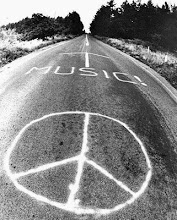
Saturday, December 20, 2008
The Doors-Strange Days[1967]

The Doors-Waithing For The Sun[1968]
1.Hello, I Love You" – 2:14
2.Love Street" – 2:53
3.Not to Touch the Earth" – 3:56
4.Summer's Almost Gone" – 3:22
5.Wintertime Love" – 1:54
6.The Unknown Soldier" – 3:25
7.Spanish Caravan" – 3:03
8.My Wild Love" – 3:01
9.We Could Be So Good Together" – 2:26
10.Yes, the River Knows" – 2:36
11.Five to One" – 4:26
Download: http://rapidshare.com/files/175119963/The_Doors-Waithing_for_the_sun_-_Semptember_1968.rar
Saturday, December 13, 2008
The Police - Ghost In The Machine[1981]

- Spirits in the Material World" – 2:59
- Every Little Thing She Does Is Magic" – 4:22
- Invisible Sun" – 3:44
- Hungry for You (J'aurais Toujours Faim de Toi)" – 2:53
- Demolition Man" – 5:57
- Too Much Information" – 3:43
- Rehumanize Yourself" (Sting, Stewart Copeland) – 3:10
- One World (Not Three)" – 4:47
- Ωmegaman" (Andy Summers) – 2:48 ("Omegaman" on some editions)
- Secret Journey"– 3:34
- Darkness" (Copeland) – 3:14
The Police - Outlandos D'Amour[1978]

Friday, December 12, 2008
Stone Temple Pilots-Core[1992]

Franz Ferdinand-Franz Ferdinand[2004]

Thursday, December 11, 2008
Coldplay-A Rush Of Blood To The Head[2002]


Dire Straits-On The Night[1993]

Depeche Mode-Black Celebration[1986]
 Black Celebration is the fifth proper studio album by Depeche Mode. Released by Mute Records on March 17, 1986, it further cemented the darkening sound that was initially hinted towards on their album Construction Time Again.
Black Celebration is the fifth proper studio album by Depeche Mode. Released by Mute Records on March 17, 1986, it further cemented the darkening sound that was initially hinted towards on their album Construction Time Again.Black Celebration is considered to be a fan-favourite, despite (or because of) its darkness and lack of "notable" singles. It didn't do as well as other albums did and none of the three singles were big hits. The album is one of their darkest as well, and focuses more on the band's bleak side.
Black Celebration is the Depeche Mode album that has the most songs with Martin Gore on lead vocals: "A Question of Lust", "Sometimes", "It Doesn't Matter Two", and "World Full of Nothing". The remaining tracks are sung by David Gahan.
The track "Fly on the Windscreen" had already been released as the B-side of the "It's Called a Heart" single. The band decided to rework the song (adding new effects and making it more stereophonic) and released it as the "Final" version on this album. It was later performed live, and given a slight hip hop edge during the 1993 Devotional Tour. A recorded performance of this version is featured in the live video Devotional and a special live single of "In Your Room".
Depeche Mode-A Broken Frame

Wednesday, December 10, 2008
Jeff Buckley-Grace[1994]

Tuesday, December 9, 2008
Tose Proeski-Igri Bez Granici[2007]

The Cranberries - Bury The Hatchet[1999]

Bury the Hatchet was the fourth album by The Cranberries, released in 1999. All lyrics by Dolores O'Riordan, and all music by Noel Hogan and Dolores O'Riordan except tracks 3, 8, 10 and 13 by Dolores O'Riordan. In the US, the album has sold 377,000 copies as of April 2007.
It's the first album released by the band after their (first) hiatus which started back in 1996. Dolores had taken that time to heal from stress-induced diseases, and also had her first child, Taylor, during this period. This last fact reflected on some of the tracks in the album, mainly on "Animal Instinct" and "You and Me".
The sound of the band had matured. It wasn't the melancholic and nostalgic feel of their first two albums, and it steered far apart of the anger shown in To the Faithful Departed. The themes of the songs vary, from maternity and children, to divorce and child abuse.
"Promises", the first single, talked about divorce, a theme that was bugging Dolores, who had time to rest in her home country, Ireland. She said she wrote it when divorce was becoming particularly popular there. She was of course fearful for her own marriage, not because she had any troubles with her husband Don, but because now she had to have something else in mind: her son.
Monday, December 8, 2008
The Beatles-Let It Be[1970]

Beatles-A Hard Day's Night[1964]
"A Hard Day's Night" is a song by British rock band The Beatles. Written by John Lennon and credited toLennon/McCartney, it was released on the movie soundtrack of the same name in 1964. It was later released as a single, with "I Should Have Known Better" as its B-side.
The song featured prominently on the soundtrack to The Beatles' first feature film, A Hard Day's Night, and was on their album of the same name. The song topped the charts in both the United Kingdom and United States when it was released as a single. Featuring a prominent and unique opening chord, the song's success demonstrated that The Beatles were not a one-hit wonder.
The American and British singles of "A Hard Day's Night" as well as both the American and British albums of the same title all held the top position in their respective charts for a couple of weeks in August 1964, the first time any artist had done this.
Sting-Ten Summoner's Tales [1993]

2. Love Is Stronger Than Justice (The Munificent Seven)
3. Fields Of Gold
4. Heavy Cloud No Rain
5. She's Too Good For Me
6. Seven Days
7. Saint Augustine In Hell
8. It's Probably Me
9. Shape Of My Heart
10. Something The Boy Said
11. Epilogue (Nothing 'Bout Me)






![Tose Proeski[1981-2007]IN MEMORY](http://www.toseproeski.info/wbstorage/articles/1bbb4db1c211914ca161b4ed512e6230.jpg)